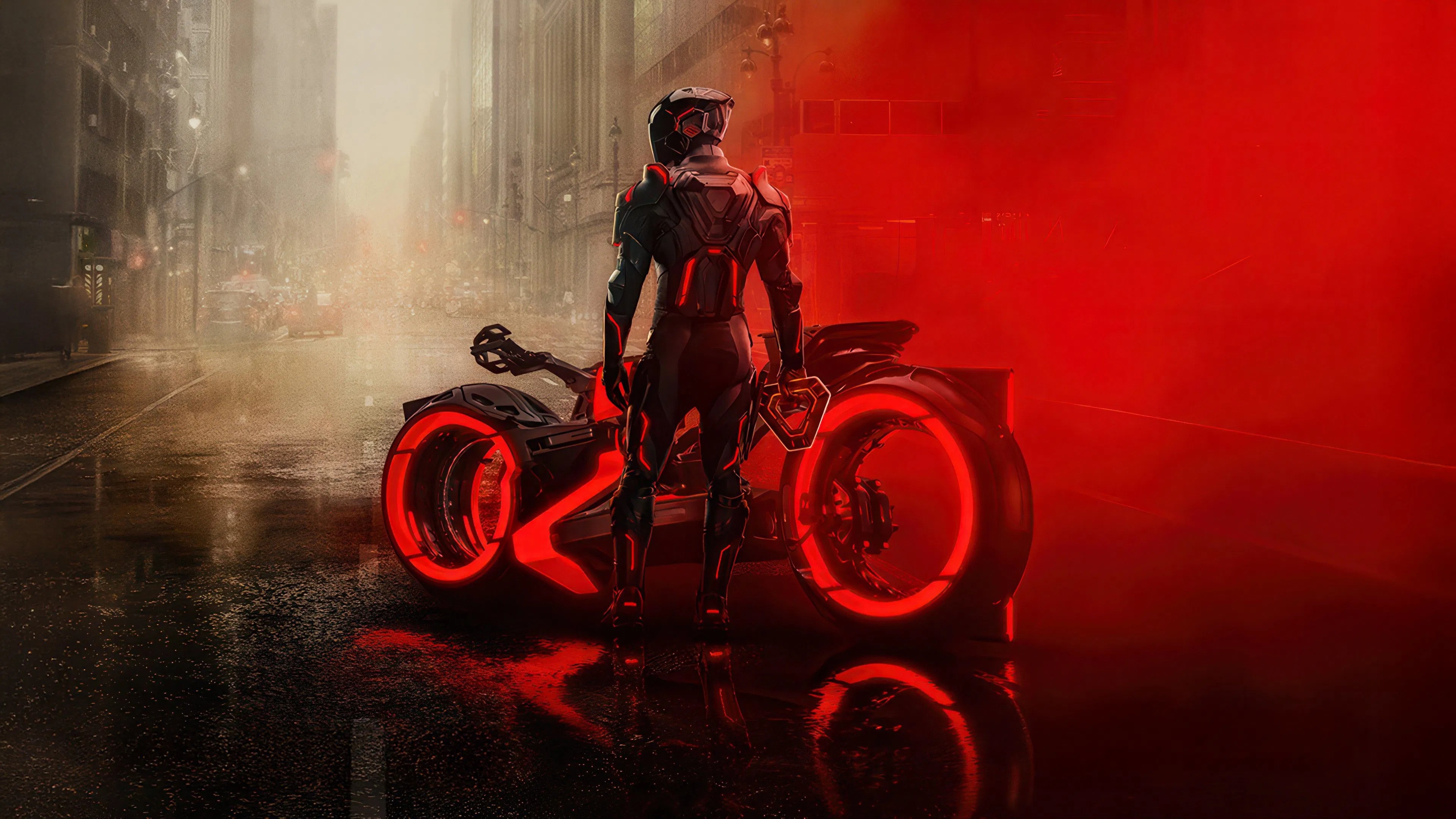
Before seeing Tron: Ares, I tried to rewatch Tron: Legacy but stopped about 30 minutes in. The acting from the lead was stiff, and the plot felt tedious despite the impressive visuals. Needless to say, I was worried heading into the Ares screening.
That worry melted away quickly, however, because Tron: Ares is a visual treat: sleek, pulsating, and only occasionally dipping into the uncanny valley during its opening sequence. Once you get past that, the film hits the gas and rarely lets up. It’s a kinetic experience, with action scenes that hum with precision and tension. I saw it in 3D and highly recommend that you do as well for the best experience.
This is a film that mostly asks you to shut your brain off and enjoy the ride, and I gladly did so. It’s nice to watch something that doesn’t demand too much from the viewer every now and then. When it briefly slows down to explain the technical plan for defeating the enemy, it feels out of place, as if someone smuggled in a scene from Tenet. Thankfully, that detour is short-lived, and we’re soon back to what the film does best: pure digital spectacle.
Where Ares really shines is in how it honors the past without being chained to it. The callbacks feel organic, not like the result of a studio executive’s “legacy checklist.” You can sense this was made with affection for the source material rather than obligation.
Jared Leto’s performance is genuinely impressive. He’s measured, magnetic, and clearly someone who understands and respects the Tron mythos. Jeff Bridges, meanwhile, plays the wise assessor to Ares’ awakening — a restrained choice that at first feels underwhelming but makes more sense the longer it sits with you.
Athena is a compelling antagonist that’s both calculating and commanding, but occasionally too hesitant. In a few key moments she pauses with a touch too much humanity for a program so supposedly driven. Those moments are written to give the characters time to do the next thing, and you feel it. It’s a small misstep, but it stands out in a film that otherwise moves with conviction.
The third act stumbles into familiar territory: generic, by the numbers, studio-safe. Yet the momentum and energy carry it through. It’s forgivable because it still feels earned. In many ways, this feels like the movie Tron: Legacy was trying to be — bold, immersive, and optimistic about the relationship between humans and technology.
And that optimism matters. In a year when so many films have turned AI into the villain (I’m rolling my eyes at you, Mission: Impossible – Dead Reckoning Part One), Tron: Ares dares to be hopeful, and it’s refreshing to watch. The franchise has always viewed technology not as a curse but as a mirror, reflecting both our flaws and our potential. I think that’s an aspect we need to keep in mind when talking about technology’s future.
Not everything clicks, however. The subplot involving CEO Eve Kim and her sister lacks emotional punch, even if it fits neatly within the story’s flow. Her sidekick, Seth, meanwhile, offers weak comic relief. Thankfully, he’s not Ned-from-Spider-Man levels of irritating, but he comes close.
If there’s one lingering sadness, it’s the sense that this might be the last time we enter the Grid for a while. If Ares doesn’t perform well at the box office (UPDATE: it didn’t), a sequel exploring the consequences of intelligence programs may never materialize (UPDATE: it probably won’t). And that would be unfortunate, because I’d like to see where this story goes next.
🎬 Verdict
3.5 / 5 — A visually striking return to the Grid that hums with energy, even when the story plays it safe.
Best for: Fans of sleek sci-fi and those who miss the earnest optimism of early-2000s blockbusters.
Skip if: You’re after deep philosophical sci-fi or emotional depth beyond the neon glow.